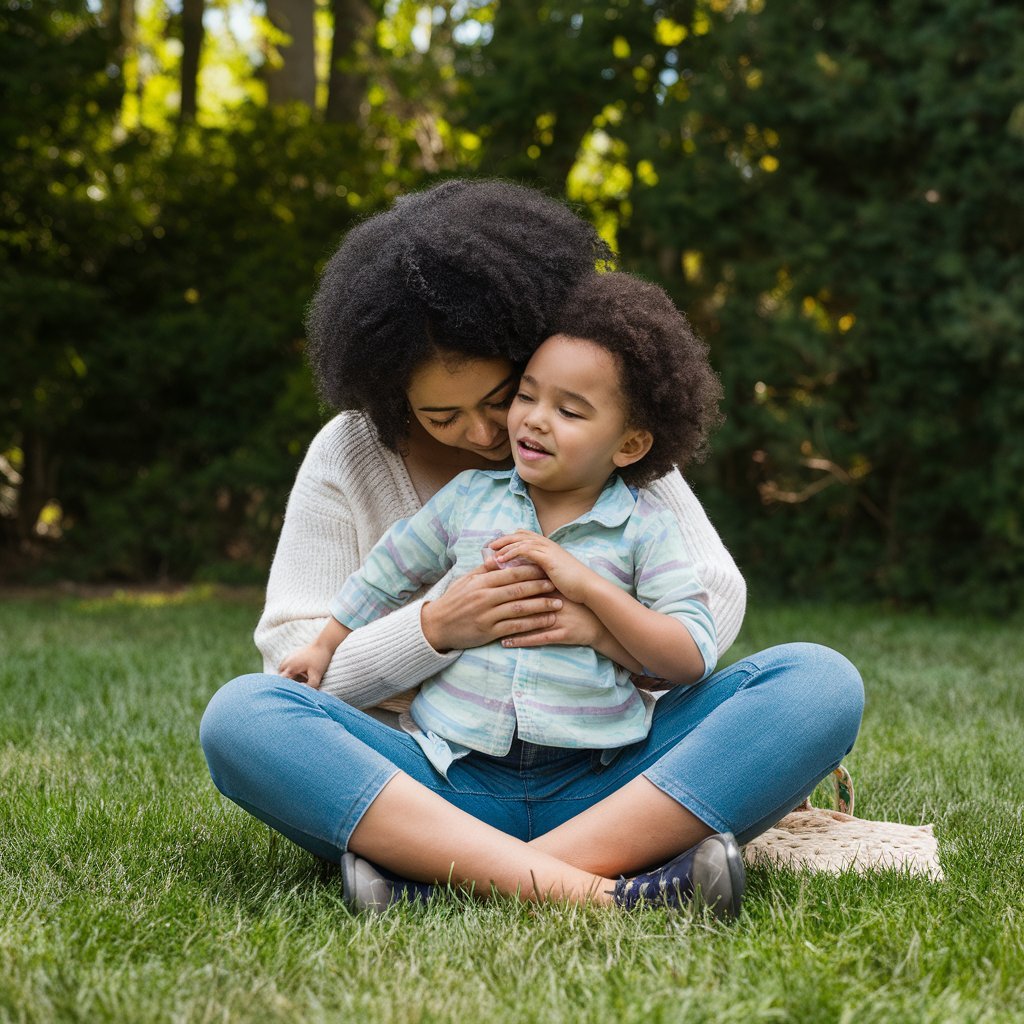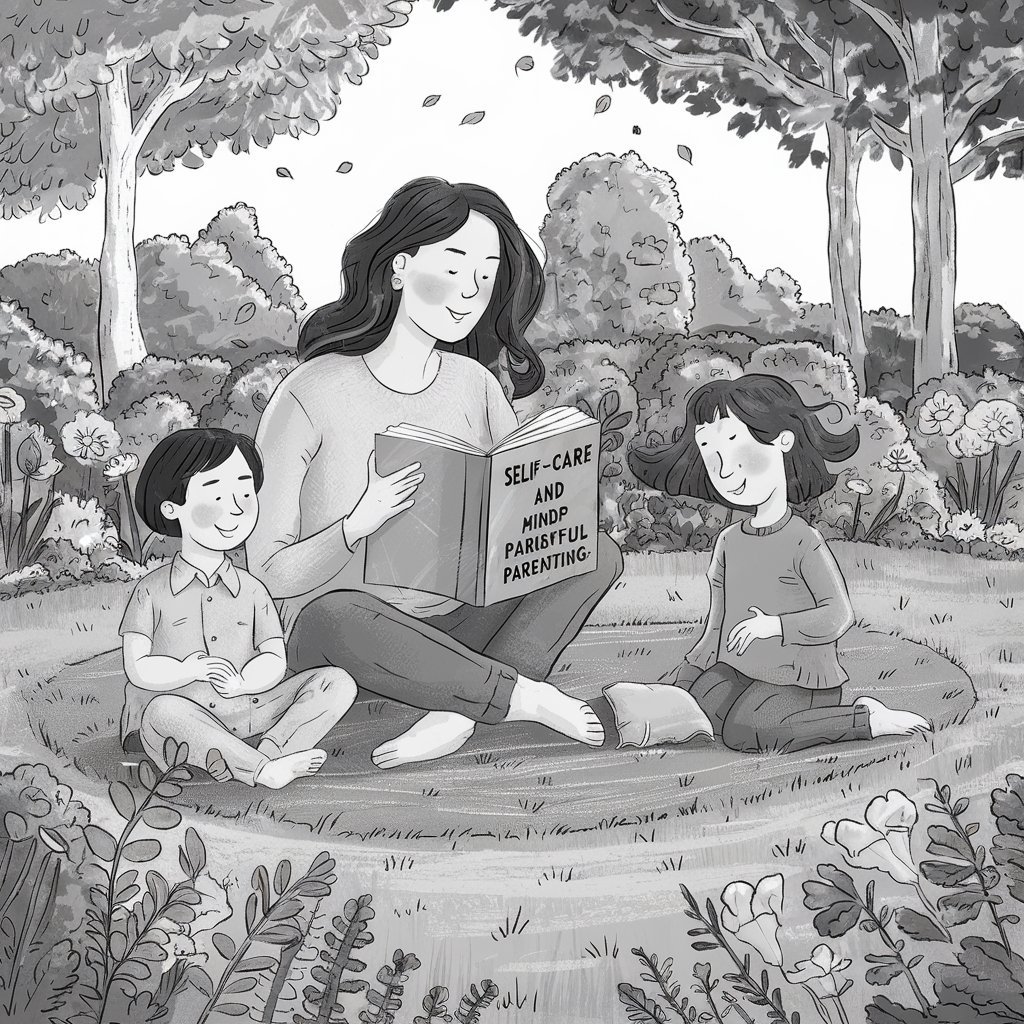Self-Care and Mindful Parenting: Nurturing Yourself and Your Children
Hey there, my young and curious friends of 2024! It’s your favorite self-care explorer, Nita Sharda, here to take you on an exciting journey into the world of self-care and mindful parenting. Now, I know what you might be thinking – “Mindful parenting? Isn’t that just a fancy way of saying being a good parent?” But trust me, there’s so much more to it than that!

Today, we’re going to put on our explorer hats and discover what self-care and mindful parenting are all about, and how they can help us nurture ourselves and our children in healthy, loving ways. But before we dive in, let me make one thing clear – this is not about putting anyone on the spot or making them feel like they need to be perfect parents. It’s simply about empowering you with the knowledge and tools to take care of yourself and your family in ways that feel authentic and meaningful.
So, are you ready to join me on this self-care and mindful parenting adventure? Let’s go!
What is Self-Care?
First things first, let’s talk about what self-care actually is. Self-care is the practice of taking care of ourselves – physically, mentally, emotionally, and spiritually. It’s about doing things that make us feel good, help us recharge, and support our overall wellbeing.
Self-care can look different for everyone, but some common examples include:
- Getting enough sleep and rest
- Eating nutritious foods that fuel our bodies
- Exercising and moving our bodies in ways that feel good
- Taking breaks and doing things we enjoy, like reading, playing, or creating art
- Practicing relaxation techniques like deep breathing or meditation
- Expressing our feelings and needs in healthy ways
- Setting boundaries and saying no when we need to
The key to self-care is listening to our bodies and minds, and doing what feels right for us in the moment. It’s not about being selfish or indulgent, but rather about taking responsibility for our own wellbeing so that we can show up as our best selves in all areas of our lives.
Why is Self-Care Important for Parents?
So, why is self-care so important, especially for parents? Here are a few key reasons:
It Helps Us Manage Stress and Burnout
Let’s face it – parenting can be stressful sometimes, even for the most loving and dedicated parents. Between the endless demands of work, family, and personal responsibilities, it’s easy to feel overwhelmed and burnt out at times.
Self-care practices can help parents manage stress and burnout by giving us tools to calm our minds and bodies, and helping us build resilience in the face of challenges. When we take care of ourselves regularly, we’re better equipped to handle the ups and downs of parenting with grace and patience.
It Models Healthy Habits for Our Children
As parents, we’re constantly modeling behavior for our children, whether we realize it or not. When we prioritize self-care and take care of ourselves in healthy ways, we’re sending a powerful message to our kids about the importance of self-love and self-respect.
By practicing self-care regularly, we’re teaching our children that it’s okay to take breaks, express their feelings, and prioritize their own wellbeing. This can help them develop healthy habits and coping skills that will serve them well throughout their lives.
It Helps Us Be More Present and Patient with Our Children
When we’re stressed, overwhelmed, or burnt out, it can be hard to be fully present and patient with our children. We may find ourselves snapping at them, zoning out during playtime, or feeling disconnected from their needs and feelings.
Self-care practices can help us be more present and patient with our children by giving us the energy, focus, and emotional resilience we need to show up as our best selves. When we take care of ourselves regularly, we’re better equipped to be the loving, attentive, and patient parents our children deserve.
What is Mindful Parenting?
Now that we’ve talked about self-care, let’s explore the concept of mindful parenting. Mindful parenting is the practice of being fully present and aware in our interactions with our children, and responding to their needs and feelings with compassion, empathy, and understanding.
Mindful parenting involves several key skills, including:
- Paying attention to our own thoughts, feelings, and physical sensations in the moment
- Listening actively and attentively to our children’s needs and feelings
- Responding to our children with patience, kindness, and understanding
- Setting clear, consistent boundaries and expectations
- Practicing self-compassion and forgiveness when we make mistakes or fall short of our own expectations
Mindful parenting is important because it helps us build strong, healthy relationships with our children based on trust, respect, and emotional connection. When we practice mindful parenting regularly, we’re better equipped to support our children’s emotional, social, and cognitive development in ways that feel authentic and meaningful.
Why is Mindful Parenting Important?
So, why is mindful parenting so important, especially for young children? Here are a few key reasons:
It Helps Children Feel Seen, Heard, and Understood
One of the key benefits of mindful parenting is that it helps children feel seen, heard, and understood by their parents. When we take the time to listen actively and attentively to our children’s needs and feelings, and respond with empathy and understanding, we’re sending a powerful message that their experiences and emotions matter.
This can be especially important for young children who are still developing their sense of self and learning how to express their feelings in healthy ways. By practicing mindful parenting regularly, we’re helping our children build a strong foundation of emotional intelligence and self-awareness that will serve them well throughout their lives.
It Promotes Positive Discipline and Behavior
Mindful parenting is also important for promoting positive discipline and behavior in our children. When we set clear, consistent boundaries and expectations, and respond to our children’s misbehavior with patience, kindness, and understanding, we’re teaching them important skills like self-regulation, responsibility, and respect for others.
This can be especially important for young children who are still learning how to navigate the complex world of social relationships and behavioral expectations. By practicing mindful parenting regularly, we’re helping our children develop the skills and habits they need to thrive in school, friendships, and beyond.
It Strengthens the Parent-Child Bond
Finally, mindful parenting is important for strengthening the bond between parents and children. When we take the time to be fully present and engaged with our children, and respond to their needs and feelings with love and understanding, we’re building a strong foundation of trust, respect, and emotional connection that will last a lifetime.
This can be especially important for young children who are still developing their sense of attachment and security with their primary caregivers. By practicing mindful parenting regularly, we’re helping our children feel loved, valued, and supported in ways that will shape their relationships and sense of self for years to come.
Nurturing Yourself and Your Children through Self-Care and Mindful Parenting
So, how can we bring self-care and mindful parenting together to nurture ourselves and our children in healthy, loving ways? Here are a few key strategies:
Make Time for Self-Care Every Day
The first step in nurturing ourselves and our children is to make time for self-care every day. This means setting aside dedicated time and space for activities that support our physical, mental, and emotional wellbeing, and making them a non-negotiable part of our daily routine.
Some tips for making time for self-care every day include:
- Waking up a few minutes earlier to meditate, stretch, or journal
- Taking short breaks throughout the day to breathe deeply, move our bodies, or do something we enjoy
- Asking for help and support from family, friends, or professionals when we need it
- Letting go of perfectionism and embracing “good enough” parenting
By making self-care a regular part of our daily routine, we’re sending a powerful message to ourselves and our children about the importance of self-love and self-respect.
Practice Mindfulness in Daily Interactions with Your Children
The next step in nurturing ourselves and our children is to practice mindfulness in our daily interactions with them. This means being fully present and aware in the moment, and responding to our children’s needs and feelings with patience, kindness, and understanding.
Some tips for practicing mindfulness in daily interactions with our children include:
- Taking a few deep breaths before responding to a challenging behavior or situation
- Listening actively and attentively to our children’s thoughts and feelings, without judgment or interruption
- Using “I” statements to express our own thoughts and feelings in a calm, respectful way (e.g. “I feel frustrated when you don’t listen to me”)
- Offering choices and compromises when appropriate, to give our children a sense of agency and control
- Apologizing and making amends when we make mistakes or lose our patience













Leave a Reply